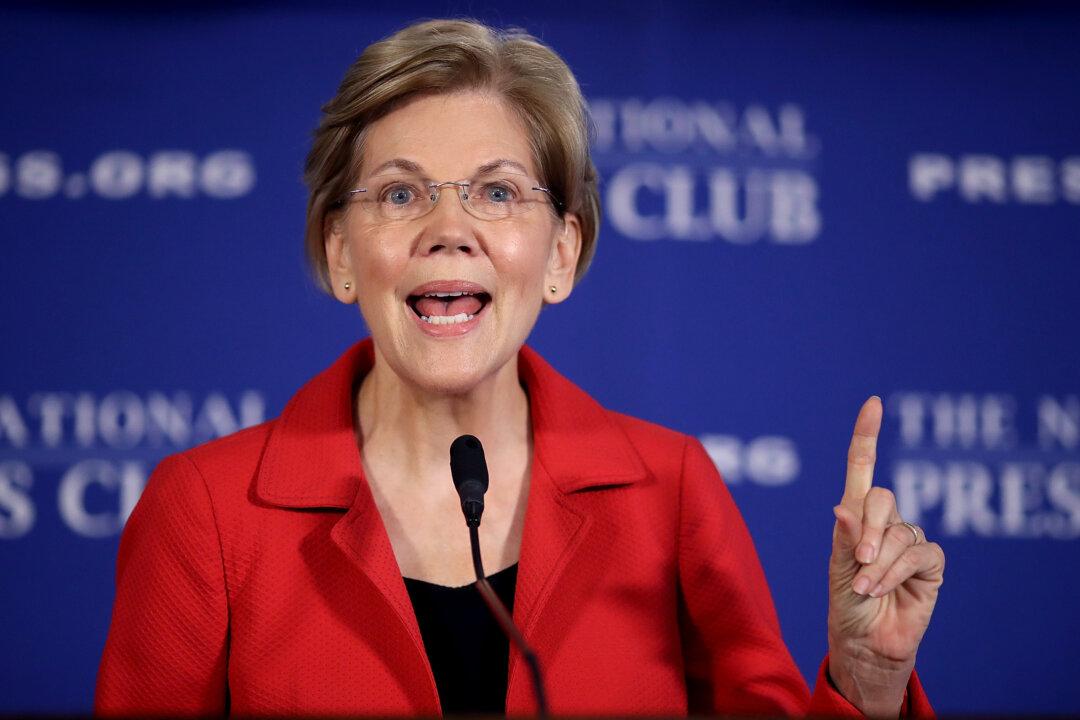Presidential hopeful Elizabeth Warren spoke at a town hall meeting in Mississippi where she called for the Electoral College—the mechanism the nation now uses to elect its presidents—to be junked.
The Massachusetts Democrat said at the March 16 meeting broadcast on CNN that she would back a plan to scrap the Electoral College and replace it with a system wherein the presidency goes to the victor in a national popular vote.





